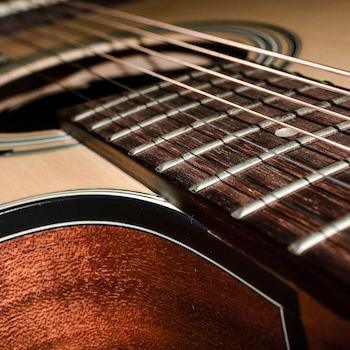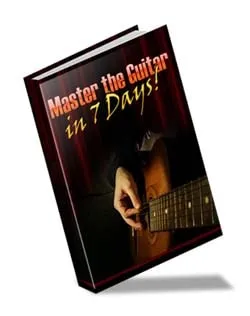Before you buy acoustic guitar strings there are a few things that are good to know. First, like everything else, not all products are equal and it does make a difference what kind of guitar string you buy; read on…

Using the right acoustic guitar string makes a difference
You can do everything else right: be in tune, have your playing smooth and clean, yet if your strings are dead, so is your sound. Dead strings have the tell-tale sound of dullness; there is no sound radiating into the room, just a thud sounding note that quickly dies out.
Gauges of acoustic guitar strings
There are basically 3 gauges of acoustic guitar strings: heavy, medium and light. Each gauge has it’s place and purpose and your choice depends on what you need.
Light Gauge Acoustic Guitar Strings
Years ago, light gauge strings were rather “wimpy” and had little volume. Today’s light strings are much better and are very often the string of choice. They are easy to play and bend, but tend to wear out more quickly than the other gauges.
Light gauge acoustic guitar strings also do not place nearly as much stress on the guitar while tuning up and playing. This is especially important if you have an older, fragile guitar.
Amazon offers great online deals for every to do with guitars, amps, strings, humidifiers, tuners, cases, you name it, they’ve got it… check it out!
Medium Guitar Strings
Medium gauge is just as the name implies: between heavy and light. This is a good choice if you want greater volume and tone. They are not as hard on the guitar as heavy strings, last longer than light gauge, and stay in tune longer as well.
Medium acoustic guitar strings are great for playing chords, or rhythm. They are not the best for beginner guitar though, too hard on the fingers.
Heavy Gauge Strings
Heavy gauge acoustic guitar strings provide the most volume, and stay tuned the longest of any gauge. The big disadvantages are that you need some seriously strong fingers to play chords, plus they put tremendous tension on the structure of the guitar. Some stores will not even carry them for this reason.

You can be sure Emmy Lou Harris uses good acoustic guitar strings
Coated acoustic guitar strings
Coated or uncoated is totally up to the individual. The coated strings are slick as can be and easy to play, but tend to fray after playing them for a while. If you change your strings frequently, this is not a problem.
Some guitarists swear by coated strings, others tend to be more traditional and stick with the uncoated. The only way to know is to check them out for yourself.
Acoustic guitar strings and alloys
The vast majority of strings are made using a bronze alloy, though sometimes steel and nickel are used. Most players prefer bronze because of the good sound and longevity.
The two types of bronze alloy are phosphor and 80/20. Phosphor strings are made mostly of copper and a little tin. The important thing is how they sound and that they last a long time
The 80/20 alloy has a brighter sound than the phosphor alloy, but doesn’t retain this brightness very long. If you change your strings frequently, this is no problem.
Amazon offers great online deals for every to do with guitars, amps, strings, humidifiers, tuners, cases, you name it, they’ve got it… check it out!
Specialty acoustic guitar strings
Like nearly everything else, there are gourmet versions available. Most major manufacturers and a host of smaller companies produce specialty strings, aimed at niche players.
These acoustic guitar strings have all kinds of different alloys, coating, gauges and so on that enhance their characteristics. Some are designed for playability, others for tone and still others for other requirements.
Recommended Guitar Brands
| Ibanez | Ovation |
| Taylor | Fender |
| Epiphone | Martin |
| Takamine | Guild |
| Gibson | Washburn |

 Sign up to receive a free ebook: Master The Guitar in 7 days! (available for a limited period)
Sign up to receive a free ebook: Master The Guitar in 7 days! (available for a limited period)